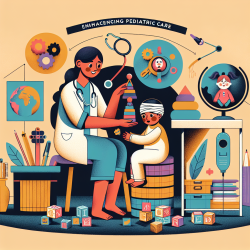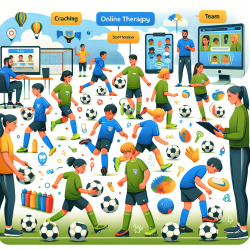As professionals dedicated to fostering the best outcomes for children, it is crucial to stay informed about emerging subspecialties and their contributions to pediatric care. The research article "Developmental and Behavioral Pediatrics: an emerging subspecialty. Experience of the Instituto da Criança e do Adolescente — ICr-HCFMUSP" provides valuable insights into the multidisciplinary approach required for effective developmental and behavioral pediatrics (DBP).
DBP has evolved significantly since its inception, becoming a recognized subspecialty in several countries. However, in Brazil, it is still emerging, particularly in centers linked to care, research, and teaching. The APDC ICr-HCFMUSP serves as a model for integrating DBP into pediatric practice, offering a comprehensive approach to diagnosing and managing developmental and behavioral issues in children.
Key outcomes from the research highlight the importance of a multidisciplinary team in the diagnostic process. This team typically includes:
- Pediatricians specialized in DBP
- Psychologists
- Speech therapists
- Psychomotor therapists
- Psychopedagogues
The diagnostic process at APDC ICr-HCFMUSP involves 3-5 appointments and includes extended anamnesis, physical examination, playful interaction, and careful observation of relationships and reactions. This comprehensive evaluation goes beyond recognizing signs and symptoms, encompassing relational aspects, parenting styles, and psychosocial factors.
From 2017 to the present, the clinic has conducted approximately 700 appointments, with a growing demand. Referrals come from various sources, including pediatricians, other health professionals, families, and schools. The main reasons for referral include suspected autism spectrum disorder, learning difficulties, behavior problems, language delays, attention deficit hyperactivity disorder, global development delays, and mood disorders.
One significant finding is that about 35% of initial referrals were not confirmed, underscoring the importance of accurate diagnosis to avoid unnecessary interventions and stigmatization. Many children required only guidance on stimuli and parenting, while others were referred to appropriate therapies.
The multidisciplinary approach in DBP ensures a comprehensive evaluation and precise referrals, supporting decision-making and contributing to better patient outcomes. This model is also cost-effective for healthcare services.
For practitioners looking to improve their skills, implementing a multidisciplinary approach similar to the APDC ICr-HCFMUSP can be highly beneficial. This involves collaborating with various specialists to provide a holistic evaluation and targeted interventions. Additionally, staying updated with the latest research and developments in DBP can enhance your practice and contribute to better outcomes for children.
To read the original research paper, please follow this link: Developmental and Behavioral Pediatrics: an emerging subspecialty. Experience of the Instituto da Criança e do Adolescente — ICr-HCFMUSP.










